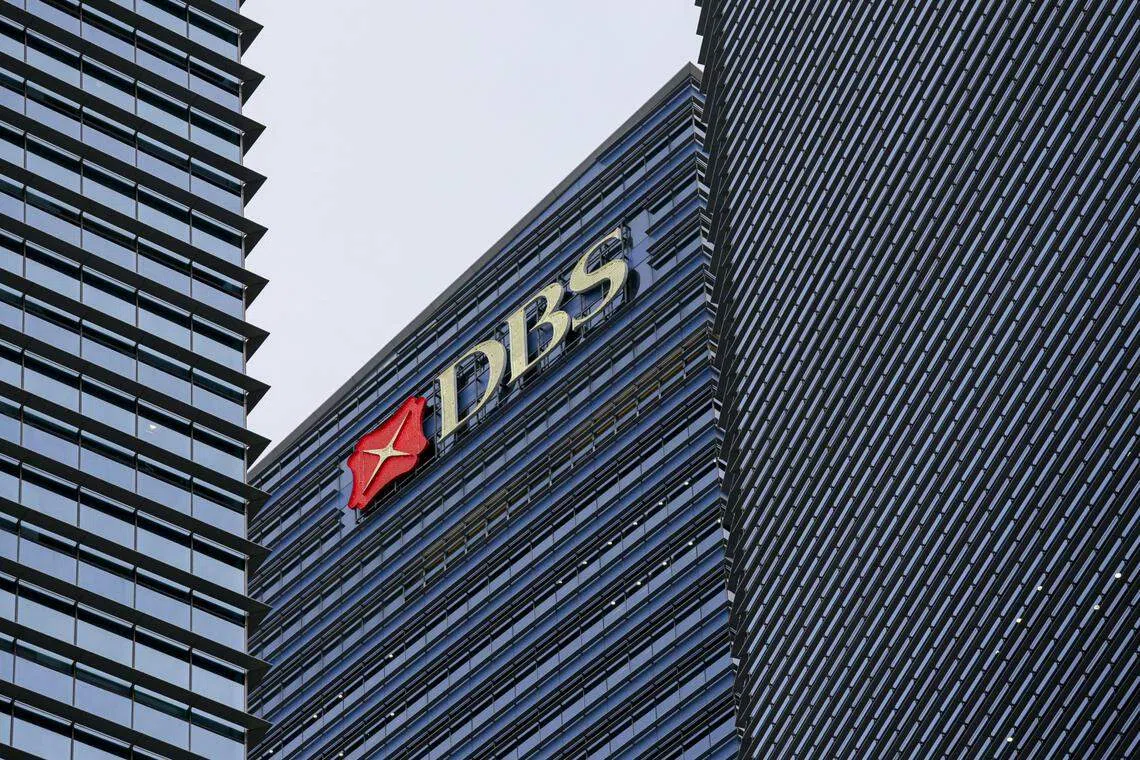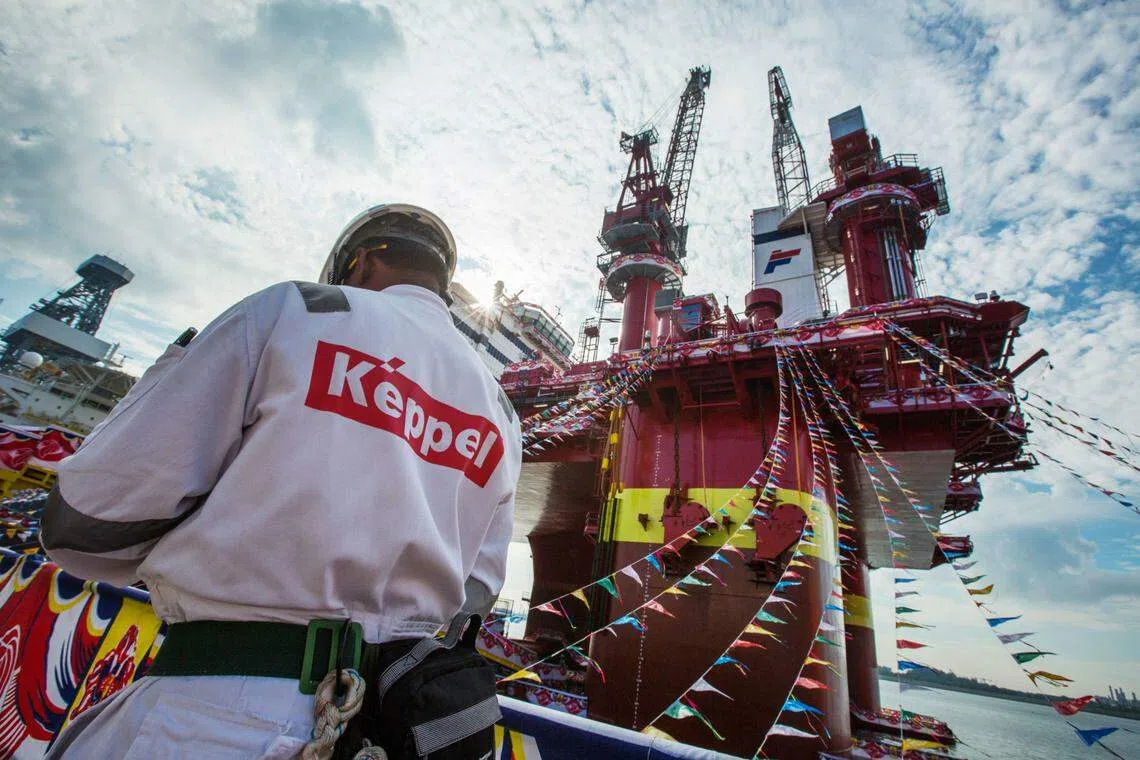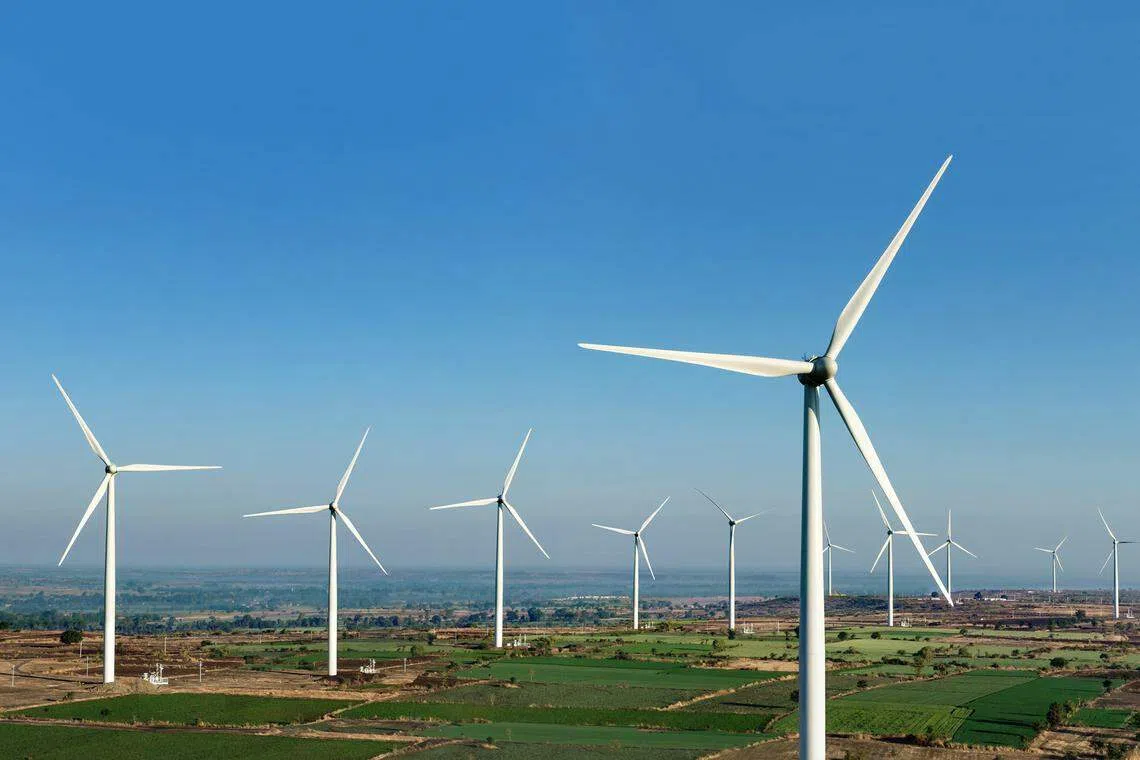CEOs of DBS, Keppel and Sembcorp expect uplift to firms from macroeconomic, sustainability tailwinds

Tay Peck Gek
ROUNDTABLE PANELLISTS
DBS: Piyush Gupta, CEO Keppel Corp: Loh Chin Hua, CEO Sembcorp Industries: Wong Kim Yin, CEO
Moderator: Tay Peck Gek, The Business Times
Q: What has been the top challenge for you as the helmsman of your organisation, and how did you tackle it?
Gupta: One of the main challenges is finding the right balance between delivering short-term results and investing for the long term. Like other industries, the financial services industry has been marked by digital disruption in the last decade. To compete effectively, it has been essential for us to continually invest in technology.
Over the years, DBS has invested in building up our capabilities in cloud computing, artificial intelligence/machine learning, data analytics and blockchain technology, among others. Every time we make an investment, this has to be balanced against ensuring we deliver strong total shareholder returns in the short term as well. We do this by being thoughtful about our investments and pacing them.
Navigate Asia in
a new global order
Get the insights delivered to your inbox.
Loh: A key challenge is for Keppel to transform and remain relevant and resilient amid a fast-changing environment. In 2020, amid the pandemic, we launched Keppel’s Vision 2030, an ambitious long-term roadmap to transform the company from a conglomerate of diverse parts into one integrated business, focused on providing solutions for sustainable urbanisation.
Over the past two years, we have simplified and focused our business, adopted an asset-light approach and grown our presence in renewables and decarbonisation solutions, in line with the company’s focus on sustainability.
The future Keppel will be a very different entity from what we were before. We will be a focused provider of sustainable urbanisation solutions, with an asset management arm, complemented by strong operational capabilities in energy and environment, urban development and connectivity.
Wong: Balancing sustainable energy transition and energy security presents a key challenge. In May 2021, we announced our brown-to-green transformation strategy. We are mindful that traditional energy sources are still vital to supporting developing economies. We need to consider our role in enabling energy resiliency and the impact on societies, even as we accelerate our transformation.
We have done this through a few ways – we continue to reskill our existing talent pool to enable their transition to new roles in our renewables portfolio. Another example, as part of the proposed sale of our two coal plants in India, we took the initiative to provide a financial incentive to the buyer that will reward the reduction in greenhouse gas emissions intensity of the plants, underscoring our commitment to sustainable energy transition.

Q: What broad principles do you apply when the interests of small investors conflict with the corporate agenda?
Gupta: We have never come across a situation whereby there is a conflict between the two. I believe this is because if a company is run sensibly with a view to creating value for multiple stakeholders over the long term, the interests of small investors will be taken care of.
Thriving and sustainable companies are those that create not just shareholder but stakeholder value. This is the approach we take at DBS, with a balanced scorecard measuring how successful we are in serving multiple stakeholders including shareholders, customers, employees and the community. We also manage the company to be successful not just in the short term but over a long-term horizon. Many of our retail shareholders are retirees reliant on DBS dividends for a steady stream of income and it behooves us to manage the company well so as to ensure its success long into the future.
Loh: The board and management run Keppel in the best interests of the company and all our stakeholders. We focus on creating value, which benefits both large and small investors. We place strong emphasis on transparent and regular communications with both institutional and retail shareholders, including through investor roadshows and the retail shareholder briefings held in collaboration with Sias. We will continue to actively engage the investment community to help them better understand and appreciate the company.
Wong: We are committed to treating all stakeholders fairly and equitably in the consideration and execution of Sembcorp ’s corporate agenda. Our investor relations policy adheres to fair-disclosure principles and emphasises active dialogue and engagement with shareholders. Through annual general meetings, extraordinary general meetings, releases and investor roadshows and conferences, we ensure that all investors have easy access to clear, reliable and meaningful information on our company in order to make informed investment decisions. For example, during the de-merger with Sembcorp Marine in 2020, we lodged our responses to shareholders’ questions via the Singapore Exchange prior to the close of the voting, presented and participated in the dialogue session held by Sias, and also provided written responses to Sias’s questions.

Q: With the global economy in a state of flux, and inflation and interest rates rising, what are some key reasons for investors to stay invested in your company?
Gupta: Let me give two reasons. First, DBS’s income is positively correlated with interest rates. A one basis point rise in US dollar interest rates typically translates to a net interest income uplift of S$18-20 million for us. Second, our business has proven to be resilient even in economic downturns, thanks to our strong capital base and prudent reserves. Global Finance has named DBS “Safest Bank in Asia” for 14 consecutive years from 2009 to 2022, and this testifies to the stability and strength of the franchise.
Loh: Keppel provides solutions for sustainable urbanisation. The essential services that Keppel provides are relatively resilient during economic slowdowns, as they had been during the pandemic. With the global focus on climate action and the push towards net zero, we are in the right space, at the right time. We expect sustainability-related solutions to be a major growth sector, auguring well for Keppel’s clean energy, decarbonisation and sustainable urban renewal solutions. We will leverage the tailwinds to accelerate the growth of Keppel’s assets under management, allowing the group to manage a much larger portfolio and contribute even more to our mission without overburdening our balance sheet.
The group’s capabilities in asset management, as well as in developing and operating real assets such as infrastructure and data centres, are highly appreciated by investors, who seek real assets with stable cash flows, which can serve as an inflationary hedge. This is Keppel’s unique value proposition.

Wong: We have set out clear 2025 targets and have executed well in the span of one-and-a-half years. Our total gross renewables capacity installed and under development almost tripled to 7.1 gigawatts. With the recent announcement on the proposed sale of Sembcorp Energy India, we would have achieved our carbon emissions intensity target for 2025 ahead of time. We are building up land bank in the urban business to achieve a sustainable land sales pipeline. In the midst of volatility in the macro environment, our commitment to transform our portfolio from brown to green is unwavering. We continue to focus on accelerating our transformation and delivering lasting value and growth for all our stakeholders.
Decoding Asia newsletter: your guide to navigating Asia in a new global order. Sign up here to get Decoding Asia newsletter. Delivered to your inbox. Free.
Copyright SPH Media. All rights reserved.





